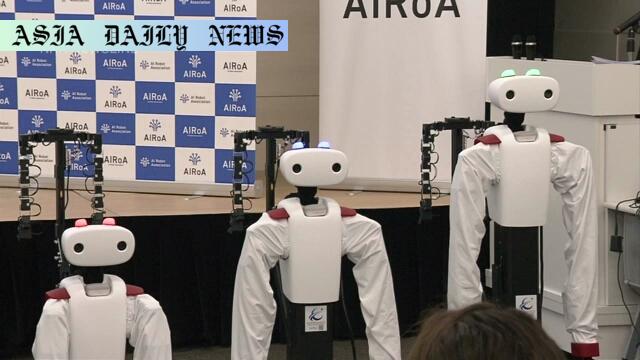AI robots are transforming industries in Japan, with the new AI Robot Association pushing innovative advancements in robotics and AI-driven solutions.

Introduction to the AI Revolution in Robotics
In a groundbreaking move, Japan has launched the AI Robot Association, an initiative bringing together 22 leading companies and university researchers to revolutionize robotics. The association, comprising major automotive, electronics firms, and academia, aims to develop AI-driven robots capable of performing intricate and versatile human-like tasks. With Japan being a global hub for robotics innovation, this collaboration seeks to push boundaries, turning science fiction concepts into reality.
The program focuses on harnessing massive amounts of data to enhance the capability of AI robots, enabling them to perform precise tasks that require sensitivity and understanding, such as handling fragile items and categorizing inventory by firmness or size. By leveraging collective resources and expertise, the association is poised to accelerate innovations that could redefine industries such as healthcare, logistics, and retail.
The Power of Data Sharing
One of the key components of the AI Robot Association’s strategy is the establishment of a comprehensive data-sharing framework among its members. Chairperson Ogata Tetsuya, a professor at Waseda University, emphasized Japan’s unique advantage in robot development and the ability to collect critical data. This shared pool of information will allow researchers to fine-tune AI technology, enabling robots to learn from human operations and replicate skilled tasks more effectively.
For example, robots trained using data from skilled workers could revolutionize manufacturing processes. By mimicking the know-how of seasoned professionals, robots could bring unprecedented improvements in productivity and quality control. Moreover, the initiative aims to create solutions tailored to specific industries, ensuring the data collected yields practical and transformative applications.
Applications Across Diverse Industries
The potential applications of AI-driven robots are vast, and the AI Robot Association aims to address challenges in multiple sectors. In nursing care, robots could assist elderly citizens with daily activities, offering a level of independence and dignity. Logistics systems, another critical area, could see efficient inventory management and streamlined delivery processes through enhanced robotic functionalities.
Furthermore, retail industries would benefit from robots capable of sorting and stocking merchandise in real-time, addressing the need for rapid replenishment in stores. Beyond these, the ultimate goal remains the development of versatile robots capable of adapting to various unstructured environments, making technological cooperation across sectors indispensable.
Challenges and Future Directions
While this initiative marks a significant milestone, it comes with inherent challenges. The collection and application of vast datasets raise concerns regarding privacy, security, and data ownership. Ensuring equitable access to shared knowledge among all member organizations will also be critical to averting potential conflicts.
Nevertheless, with a strong commitment to advancing robotics and AI, the association is poised to address these challenges through transparent and collaborative policies. By focusing on ethical AI and sustainable development methods, Japan continues to assert its leadership in global technology innovation, paving the way for the next robotic revolution.
Commentary
Collaborative Innovation: A Remarkable Initiative
The launch of the AI Robot Association in Japan is a profound example of collaborative innovation. By bringing together 22 companies and university experts, the initiative underscores the importance of teamwork in solving complex problems. It is inspiring to see such diverse organizations pool their resources and expertise with a shared vision of advancing AI-driven robotics. This collaborative approach not only increases the collective capacity for innovation but also ensures the development of practical solutions that cater to both industry and societal needs.
Potential to Transform Society
The possibilities unlocked by AI robots are truly exciting. The association’s ambitions to improve various sectors—such as healthcare, logistics, and retail—could lead to unprecedented efficiencies and new opportunities. For example, robots assisting the elderly in their daily lives could address labor shortages in nursing care while providing a safety net for a rapidly aging population. Similarly, enhanced logistics through robotics could reduce costs and delivery times, ultimately benefiting both businesses and consumers.
Overcoming Challenges and Ethical Considerations
However, as with any technological advancement, potential drawbacks must be carefully addressed. Issues surrounding data sharing, privacy, and AI ethics should not be overlooked, as they could hinder both innovation and public trust. Transparent policies and equitable data-sharing practices within the association will be vital to ensuring that this ground-breaking initiative reaches its full potential in a responsible manner.
Overall, the establishment of the AI Robot Association offers an exciting glimpse into the future. If successful, it could set the standard for international collaboration in robotics and AI, marking the beginning of a new era for technology-driven solutions across industries worldwide.


